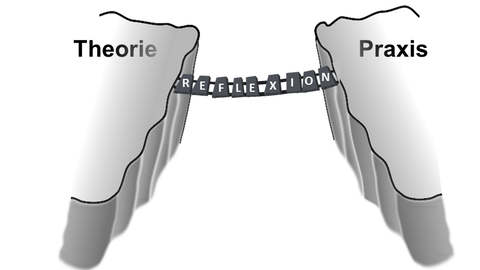
The „third mission“ of universities address challenges of the society. Research and teaching are geared toward the intersection between university and societal institutions. Ideally, situated, real-life problems are taken up in research and teaching at the same time. Related to the “third mission”, new teaching formats have spread the universities. One of those is the so-called Service Learning format. Societal organizations benefit from the active support they receive from students working in the organizations (Service), whereas students apply scientific knowledge and scientific methods to analyze real-world problems and to find solutions (Learning).
Is teaching and learning in such practice-oriented situations successful, just because students deal with practical problems? Research so far has shown that gains in learning depend on the reflective examination of the situated problem with theoretical knowledge and scientific methods. Such reflective examination can result in new insights and new options for action. However, reflection that connects scientific theory with practice does not happen by itself. It needs support.
Our research on theory-practice-reflection is split into two subfields.
In the first subfield, new measurement instruments are developed, psychometrically tested and validated. The scales measure the (1) acquisition of action knowledge for practical situations, (2) job orientation and (3) theory-practice-reflection in the form of (a) a course evaluation and additionally in form of (b) competence self-assessment. Using those scales, experience-based teaching formats such as Service Learning can be examined and evaluated.
In the second subfield, instructional interventions to foster theory-practice-reflection in experience-based courses are developed, evaluated and optimized.
Contact: Anne-Sophie Waag